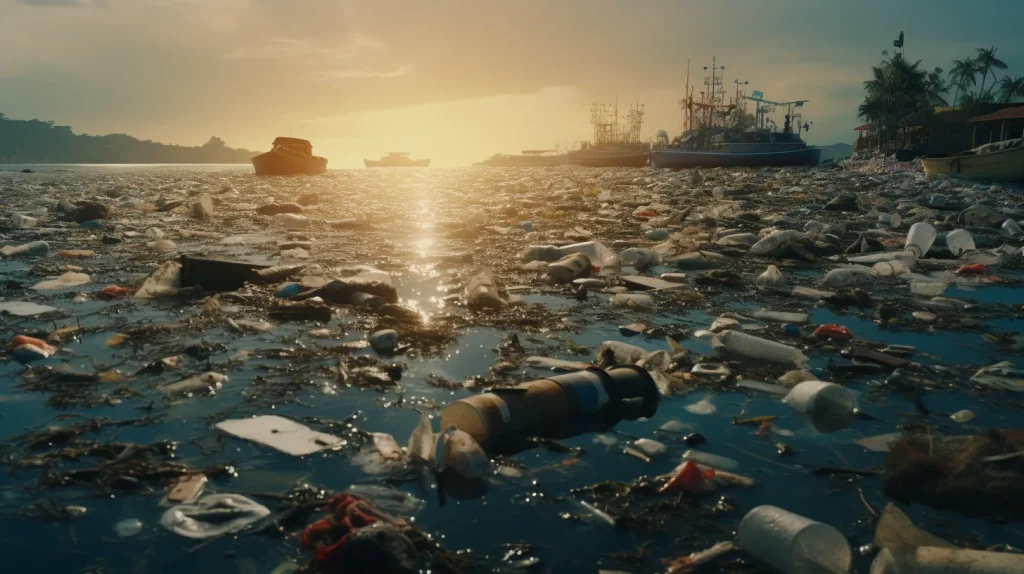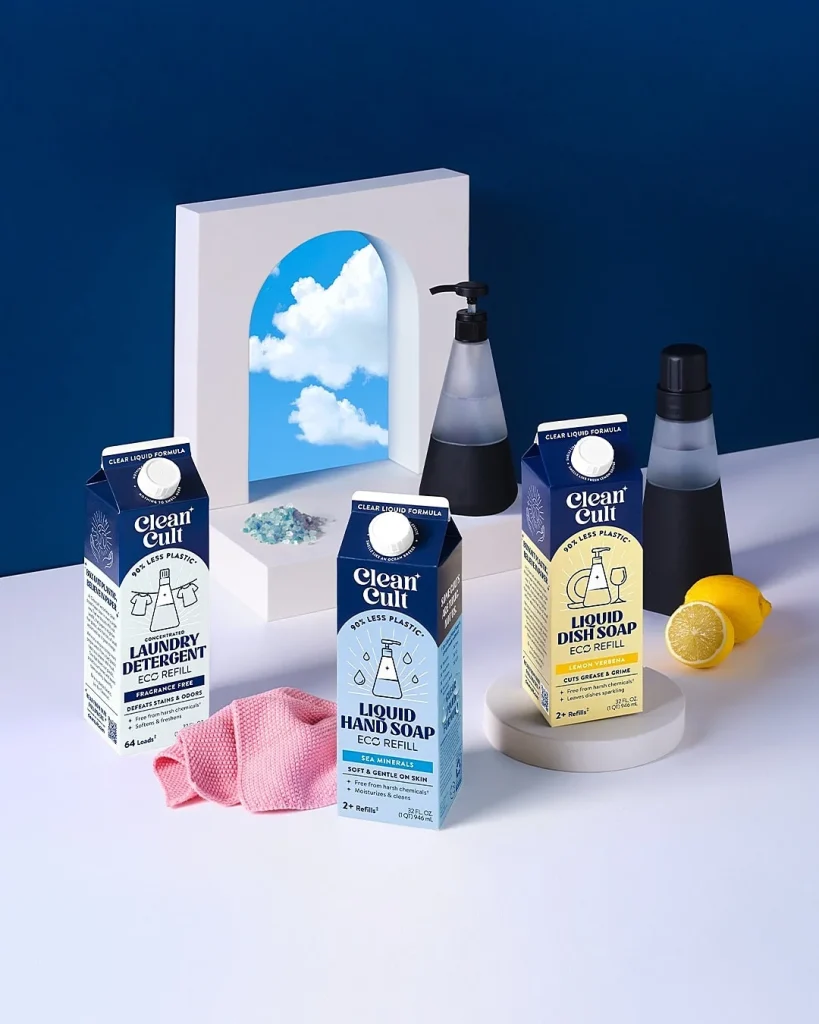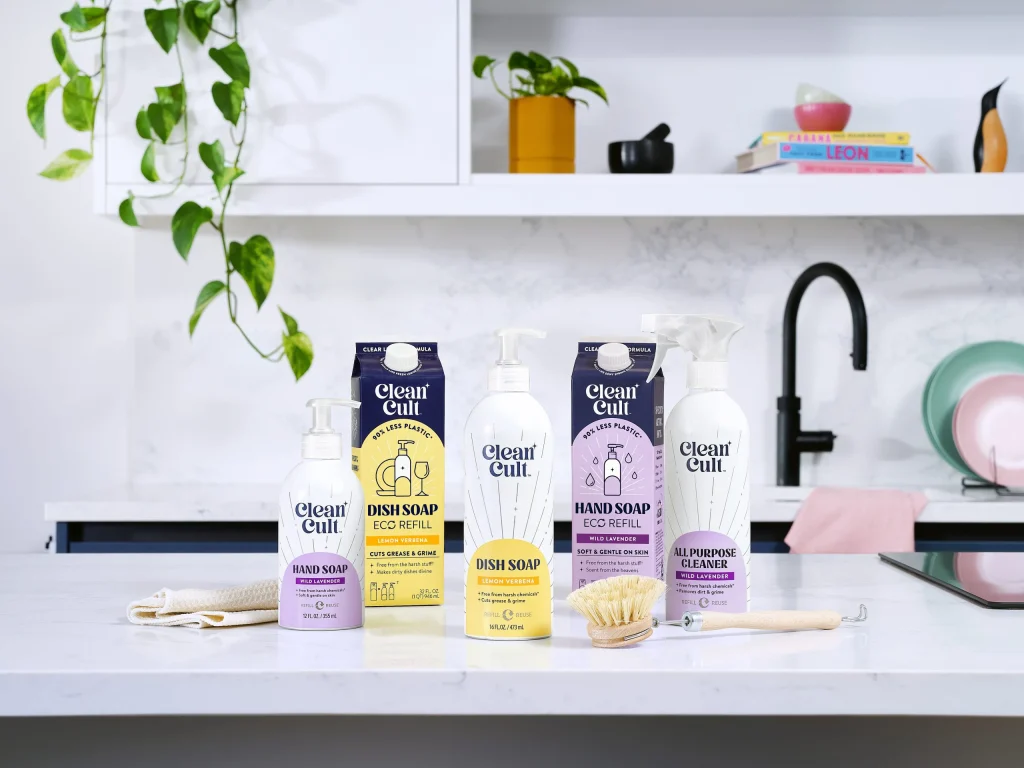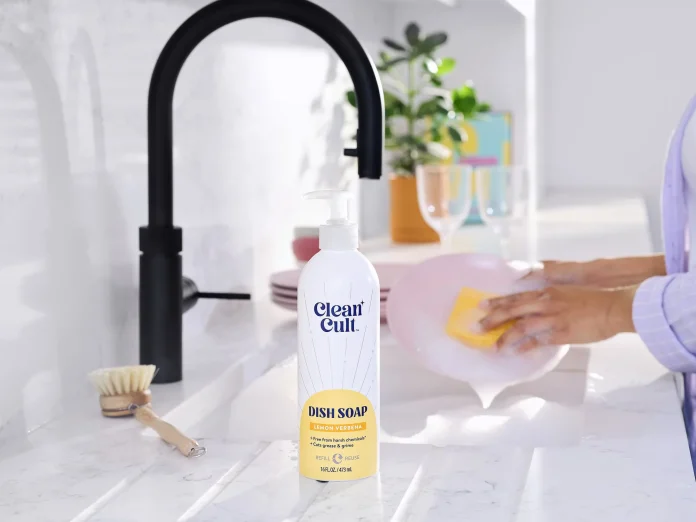Getting clean shouldn’t have to mean destroying the environment, yet that is exactly what most detergents and household cleaners end up doing – polluting the planet with plastics and toxic chemicals. The shelves of grocery and drug stores are filled with products contained or wrapped in plastic. Labels reveal compounds bad for your family and for the ecosystem. It doesn’t have to be that way; Cleancult offers products to clean your body and home in a healthy way while reducing harmful waste that ends up in landfills and oceans.
You May Also Like:
The environmental and health implications of plastic
“Plastic pollution has become one of the most pressing environmental issues, as rapidly increasing production of disposable plastic products overwhelms the world’s ability to deal with them,” reports National Geographic. The impact of waste plastic on the Earth is staggering, as plastic bottles and containers overload landfills, clog waterways, and pollute our oceans. Our planet, container by container, bottle by bottle, is being buried in non-biodegradable plastic.
Half of all plastic ever produced has been made in the last 15 years, and this amount is forecast to double by 2050. In the U.S. alone, 40 million tons of plastic are disposed of each year, while only 5% is recycled (Smithsonian).
“Plastic pollution is a global problem. Every year 19 to 23 million tons of plastic waste leaks into aquatic ecosystems, polluting lakes, rivers, and seas,” according to the UN Environment Program. Approximately 8 million tons of that plastic end up in the world’s oceans each year, with currents carrying it around the world.
The implications of this dispersal are considerable. Additives that make plastics stronger, durable, and flexible may delay decomposition for up to 500 years. Instead of fully decomposing, plastic is broken down by the natural forces of sun, wind, and pounding ocean waves into microplastic particles. These microscopic bits of plastic are consumed by fish and then passed along to us in the seafood we consume.
Microparticles of plastic are also in the atmosphere, inhaled by humans and other living creatures. Studies find that millions of wildlife have died from ingestion of plastic microparticles.

Microplastic particles are virtually impossible to retrieve once dispersed; the only long-term solution is to prevent plastic from getting into the environment. One step is to greatly reduce the use of plastic in disposable packaging.
Even many “natural” or “holistic” liquid detergents and cleaning products are packaged in non-biodegradable plastic, which will exist almost indefinitely. However, there are sustainability-friendly plastic-free packaging alternatives being used by concerned companies like Cleancult.
The toxicity of liquid soaps, detergents, and household cleaning products
Another serious threat to the ecosystem and to our health is the actual contents in those plastic containers. The labels on most cleaning products list—in hard-to-read small print—harsh chemical ingredients that are not only toxic but may even be carcinogenic. These are typically found in popular detergents, household cleaning products, and hand cleaners:
Sodium lauryl sulfates (SLS/SLES) are inflammatory to the eyes, lungs, and skin.
1,4-dioxane and formaldehyde are probable carcinogens. Formaldehyde can irritate the eyes, throat, airways, and skin.
NPEs can disrupt the hormone system and create reproductive problems.
Phosphates are associated with cardiovascular disease and osteoporosis.
Phthalates seeping into cleaners from plastic containers can cause endocrine disorders.
Luckily, there are alternatives; safe formulations from companies like Cleancult.
Cleancult: The first brand to meet high environmental packaging expectations
Cleancult CEO and co-founder Ryan Lupberger grew up in Colorado, where he developed a deep appreciation for the environment. He questioned the amount of plastic being used to package home care and personal care products. “How can even natural products be good for the planet if they are packaged in petroleum-based plastic?”
Ryan co-founded Cleancult in 2019 with a vision to end the use of disposable plastic in cleaning product packaging. The company has already made a significant positive impact; users of Cleancult have diverted over 7 million pounds of single-use, nonbiodegradable plastic from landfills and the oceans.
Cleancult is the first to provide refillable aluminum bottles and refillable glass bottles with their cleaning products. It is also the first to successfully package liquid soaps, cleaners, and detergents in recyclable, paper-based milk cartons to be used for refilling. It took 3+ years to develop these packaging alternatives that reduce carbon and eliminate plastic.
As Ryan explained in a recent interview with Scott Amyx, “By combining paper-based packaging and refillable aluminum and glass bottles, Cleancult reduces the amount of single-use plastic that ends up in our oceans and landfills, and has earned rePurpose Global Plastic Neutral Certification.”
Through its Plastic Neutral Certification, Cleancult helps fund and support sustainable waste management projects that recover and remove plastic waste from the environment. This includes “Sueño Azul, a cooperative of waste workers who have revolutionized waste management practices in Bogotá, Colombia,” Ryan notes.

Innovative leadership in non-chemical ingredients
Most of the ingredients in Cleancult products are derived from natural, biodegradable coconut, aloe leaf extract, lavender, glycerin, jojoba, citrus fruit, and essential oils. Unlike traditional cleaning products, there are no harsh chemicals like phthalates, phosphates, SLES/SLS, dyes, or parabens. Yet Cleancult products clean effectively:
All Purpose Cleaner: From countertops and walls to floors, use everywhere in your home for a deep, refreshing clean. The clear formula removes dirt and grime without harsh chemicals, while the “all-natural scent leaves your home smelling heavenly fresh.”
Liquid Dish Soap: Banishes grease and grime and converts dirty dishes to dazzling clean. Made without harsh chemicals to “leave your hands silky smooth and your home (and planet) free from single-use plastic thanks to our eternal aluminum bottle.”
Foaming Hand Soap: Skin-friendly hand soap that “cleanses and moisturizes your hands with a cruelty-free formula that’s soft and gentle, helping nourish skin by restoring moisture and oils.”
Laundry Detergent: Concentrated formula transforms your laundry, “delivering crisp, clean clothes every time.” Conforms to any water temperature or machine type; defeats stains and odors. “
Each laundry detergent, hand soap, and dish soap refill uses eco-friendly, paper-based, 100% recyclable packaging that’s better for the planet. Nature-inspired scents include wild lavender, lemon verbena, and juniper sandalwood, with sweet basil and fresh linen soon to be available as well.
“Our Cult of Clean is a movement for change. A way to ‘box out’ plastic, and to embrace safe, natural, non-toxic ingredients.” Cleancult cleans homes and leaves them “smelling like dewy spring blooms; we want to help more people switch from a bad plastic habit to our powerful refill ritual.”
Cleancult cleaning products and refillable bottles are available to order on the website, or on Amazon. Cleancult can be found on shelves at Walmart, Safeway, Vons, Pavilions, Jewel-Osco, Acme, Kroger, Albertsons, Walgreens, CVS, and many other stores. Use the store locator to find a Cleancult retailer near you.

A better world for ourselves and those who will follow
There is an immediate need for change to stop further environmental damage. Pause before purchasing detergents, liquid soaps, and household cleaners packaged in plastic. Read the labels to check the ingredients.
“Only together can we reduce waste, revive lives, and restore nature’s balance,” advises rePurpose Global. Visit their site for practical advice, and to learn how you can switch to eco-friendly alternatives today. By taking a proactive approach and selecting plastic-free cleaning products with nontoxic ingredients, you support a safe, clean ecosystem and a healthier lifestyle for ourselves and future generations.

Further Reading for Additional Knowledge:
Climate Change with Scott Amyx: “Interview with Ryan Lupberger, CEO of Cleancult”
National Ocean Service (NOAA): “What are Microplastics?”
rePurpose Global: “Solving the Global Plastic Waste Crisis”
United Nations Environment Program: “Plastic Pollution”
Important Note: The information contained in this article is for general informational purposes only, and should not be construed as health or medical advice, nor is it intended to diagnose, prevent, treat, or cure any disease or health condition. Before embarking on any diet, fitness regimen, or program of nutritional supplementation, it is advisable to consult your healthcare professional in order to determine its safety and probable efficacy in terms of your individual state of health.
Regarding Nutritional Supplements Or Other Non-Prescription Health Products: If any nutritional supplements or other non-prescription health products are mentioned in the foregoing article, any claims or statements made about them have not been evaluated by the U.S. Food and Drug Administration, and such nutritional supplements or other health products are not intended to diagnose, treat, cure, or prevent any disease.


